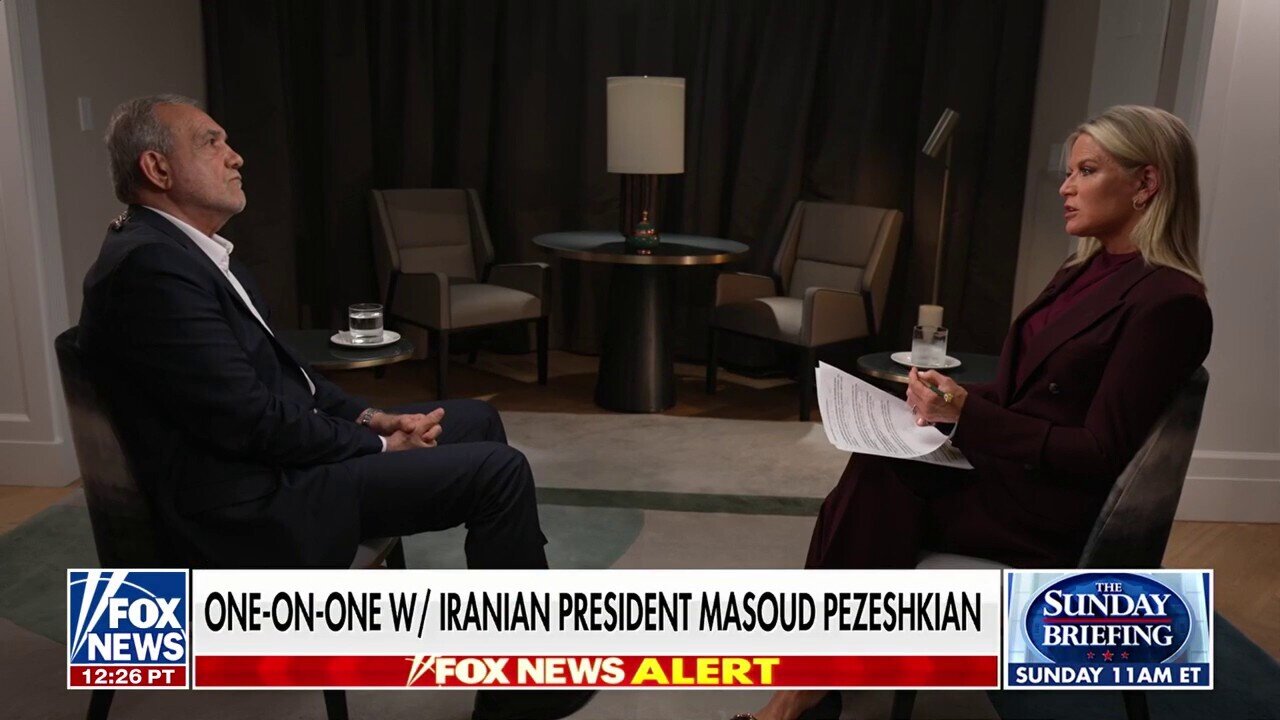Masoud Pezeshkian’s strategic discourse on Fox News

MADRID – The interview granted by Masoud Pezeshkian, the Iranian president, to the U.S. network Fox News represents a singular episode in both media and diplomatic relations between Iran and the United States. Beyond the usual dialectical clash characteristic of Western media, this conversation opens a window to examine Iran’s political and strategic evolution at a moment when its limits and potential are being tested by external tensions and shifts.
On Fox News, Pezeshkian constructs a narrative that moves away from epic confrontation, offering a more complex portrait of Iranian reality. He acknowledges difficulties and mistakes but emphasizes that these are neither insurmountable nor definitive. The state is capable of learning, adapting, and advancing its projects despite economic sanctions, pressure campaigns, and regional tensions.
This measured recognition of vulnerabilities, combined with a determined commitment to perseverance, undermines narratives that reduce Iran to an inflexible or dogmatic actor. The discursive staging confirms that Iranian policy has been moving toward a rebalancing strategy grounded in the rationality of power and calculated diplomacy.
A key aspect of this narrative is the clarity with which it asserts that Iran’s political survival and regional influence rest on the ability to coherently manage internal dynamics while simultaneously building a strong, cohesive, and dialogue-ready external front. This interview, therefore, goes beyond the mere need to communicate; it becomes a strategic tool to align expectations and stabilize balances both within and beyond its borders, projecting a message of confidence and persistence in its national and regional project.
The nuclear issue: Sovereignty and negotiation in a game of balances
As expected, the focal point of the interview is Iran’s nuclear program, which has been at the epicenter of disputes with the West for decades. Pezeshkian reaffirms the country’s right to civilian nuclear energy, citing international norms and preexisting multilateral agreements. At the same time, he distances himself from accusations of military intentions, labeling them unfounded and reiterating a commitment to a peaceful policy in this domain.
His discourse on negotiation follows a logic of mutual respect and reciprocity, emphasizing that any progress requires a genuine willingness by the parties to abandon unilateral measures and coercion, beginning with the suspension of oppressive sanctions.
This approach constitutes a political maneuver aimed at presenting Iran as willing to keep channels open while demanding conditions that cannot be compromised. This complexity is essential to understanding contemporary dynamics: the country advances toward sustained negotiations without yielding its core strategic prerogatives.
Furthermore, Pezeshkian emphasizes the international legitimacy of Iran’s civilian program in contrast to what he defines as “political attempts at demonization.” T
Here, the discourse reflects a strategic calculus balancing the need to preserve the integrity of the national project with the urgency of accessing economic and political benefits through negotiation. The way Pezeshkian weaves these arguments reveals a sophisticated understanding of the international chessboard and the importance of managing both dimensions with care.
Regional reconfiguration: Beyond conflict rhetoric
Pezeshkian also shifts focus to the regional arena, noting that West Asia is currently in a conjuncture marked by multifaceted threats and the instrumentalization of conflicts to advance external agendas. Within this framework, he predicts that stability will only be possible through sovereign cooperation among regional nations.
This proposal emphasizes the need to rethink dynamics rooted in sectarian antagonisms and artificial divisions, transforming them into pragmatic mechanisms that prioritize political autonomy and collective security. Essentially, it outlines a model of flexible and sovereign alliances whose viability depends on the willingness to overcome historical differences and external rivalries.
It is noteworthy that Pezeshkian articulates this vision not only from the realist perspective of inter-state relations but also acknowledging the multiplicity of non-state actors and fragmented governments. He stresses that responses to threats cannot be reduced to destructive wars but require political coordination and pragmatic agreements.
This often-underestimated perspective in Western coverage accurately reflects Iran’s longstanding strategy of building networks of alliances capable of generating stability and deterrence in the face of Israeli predominance and U.S. strategy in the region.
On economic matters, Pezeshkian does not shy away from the reality of Westen sanctions, which have undeniably impacted Iran. However, he uses a narrative that avoids victimhood, emphasizing adaptability, innovation, and deepening self-sufficiency within the framework of autonomous development.
This narrative portrays popular and state resilience, where overcoming economic adversity is linked to rejecting external dependency. In this view, the economy is not merely a technical matter but an essential vector of sovereign policy that legitimizes the national project and enhances regional influence.
Technological innovation, industrial development, and a gradual approach to emerging markets are presented as key pillars enabling Iran to navigate economic pressure while maintaining a growth profile that, although modest, is valued domestically and projects strategic continuity.
Governance and internal political cohesion
Regarding internal politics, Pezeshkian offers a conceptual vision of Iranian society as plural yet cohesive—a space where broad consensus around fundamental principles coexists with tacit acknowledgment of mechanisms designed to foster stability.
This account offers a richer, more dynamic understanding of the political system, moving beyond the simplification of a “static, monolithic regime.” The emphasis on governance and institutional innovation emerges as a key element for ensuring medium- and long-term stability.
The interview highlights a clear bet: a country seeking to reshape Western perceptions to consolidate a space for strategic negotiation without relinquishing its red lines. Communication through a public and adversarial outlet reflects an active effort to create interlocution spaces capable of moderating tensions and fostering negotiation processes in a transforming environment.
This political maneuver embodies the conceptual and pragmatic evolution of Iranian foreign policy. The ability to modulate discourse and address unconventionally receptive audiences is a valuable tool, potentially translating into diplomatic advances as long as the country’s core red lines are respected.
Leave a Comment